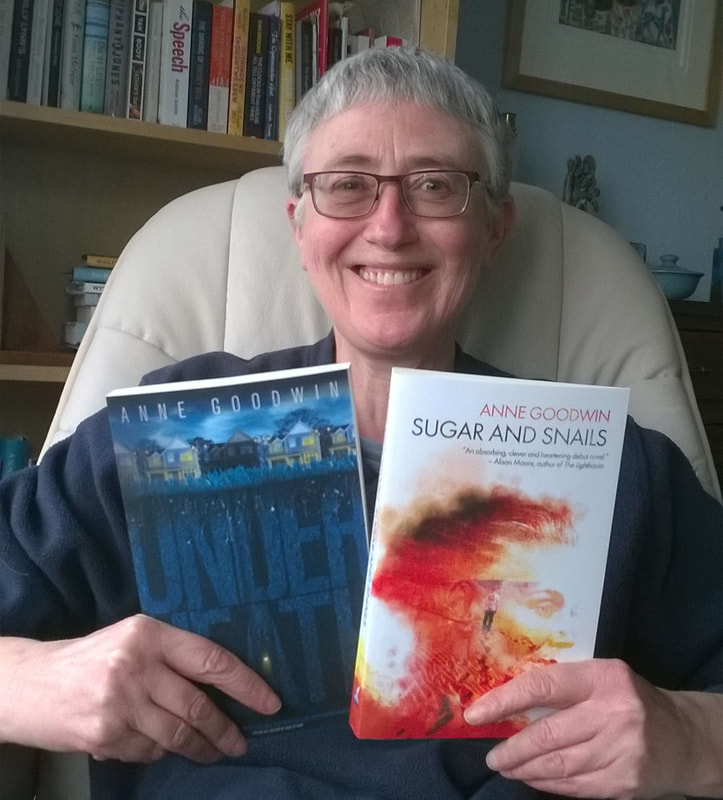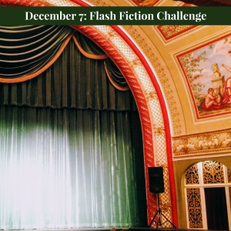| Although I have suggested that the creative writing industry exists as much for the tutors’ benefit as the students’ (as is often the case with helping relationships), I’m not against writing courses, mentoring and professional critiques. I’ve drawn on all three in my own journey to becoming a published novelist, and have a new piece on The Literary Consultancy website about how separate critical readings from members of their panel of experienced writers and editors helped shape my recently published second novel, Underneath. But these appraisals don’t come cheap. If you’re thinking of commissioning one, here are a few questions to ask yourself first. |
You’ve poured blood, sweat and love into your baby to make it the best it could be. But here’s the rub: there are lots of other babies out there, some of them far bonnier than yours. If you want your progeny to prosper in the publishing marketplace, you need to first face up to its faults. As Gulara Vincent wrote in receiving feedback gracefully, a frank appraisal of your writing can be hard to take, even when that’s what you’ve asked for. So make sure you are ready to receive what might be bad news, and have strategies in place for taking care of yourself while you let it sink in. If you are a relatively new writer, or an experienced writer working on a new manuscript, you might be better off with more gentle feedback from trusted allies initially.
What do you want from your critique?
Are there scenes in your manuscript which, when you read them, make you cringe? Is there a voice you’re not sure about or does your ending feel flat? Try to hone in your concerns and make them explicit in your application. This isn’t the time to hope your reader won’t notice you’ve fudged something. They might be able to offer suggestions for improvement or reassure you it’s not as bad as you thought. They might – probably will – throw up other problems you haven’t thought off, that’s the nature of this thing. Think of it as an opportunity to borrow a fresh pair of eyes or a mind not your own and use it to get what you want.
Do you need critique or an edit?
Terminology can be confusing: I’ve come across other writers blogging about edits for what I consider critiques. Others mention two types of edit: a developmental edit (which equates in my mind to critique) gives more generalised feedback to guide your next draft whereas a line edit focuses more on matters of style, presentation and grammar, which might be of more use at the submission stage. Again, it’s worth being clear what you’re asking for, although (as has been my experience) some can’t help providing a bit of one when you’ve paid them for the other.
Who do you want feedback from?
Not all critique services can offer a choice of reader, but they should nevertheless be able to accommodate some preferences. As a woman writing my second novel, Underneath, in the voice of a man, I specifically requested critique from a male reader. Or you might choose a service on the basis of a personal recommendation, or that you admire that person’s own writing.
How will you use the feedback?
Just as giving criticism is a skill, so is making good use of the feedback provided. Ideally, you’ll find a position somewhere between dismissing what you don’t like (in which case, why would you have asked for it?) and taking everything on board because it comes from an expert (in which case, is this still your project?). There is a lot of wisdom in the oft-quoted advice to accept feedback that tells you what is wrong but reject advice on how to fix it. But sometimes inexperienced writers do need how-to-fix-it suggestions, just as some industry professionals can’t help giving more concrete advice than is needed. Although you can’t predict for sure how you will use feedback you haven’t yet received, it’s worth considering your general propensities in advance. For example, if you are a people pleaser, you might need to remind yourself that this is just one opinion which you are free to use or reject as you see fit. If you tend to stick rigidly to your own point of view, you might need a reminder that you asked for this for a reason. Additionally, if you’re not sure how to make use of the feedback, you can ask others to help you decipher the report.
Are there any other factors you consider important? Do let me know if there are any I’ve missed.
Meanwhile, you can read about my reflections on the critiques that led to the publication of my debut novel and the follow-up article on getting to my second published novel. For this month, I’m honoured to be The Literary Consultancy’s showcase author.
| If you’re looking for this week’s 99-word story (of course you are) I’ve added it to the end of an earlier post that was just perfect for the theme: Does a ‘first draft’ video reflect badly on my published fiction? |























 RSS Feed
RSS Feed





















